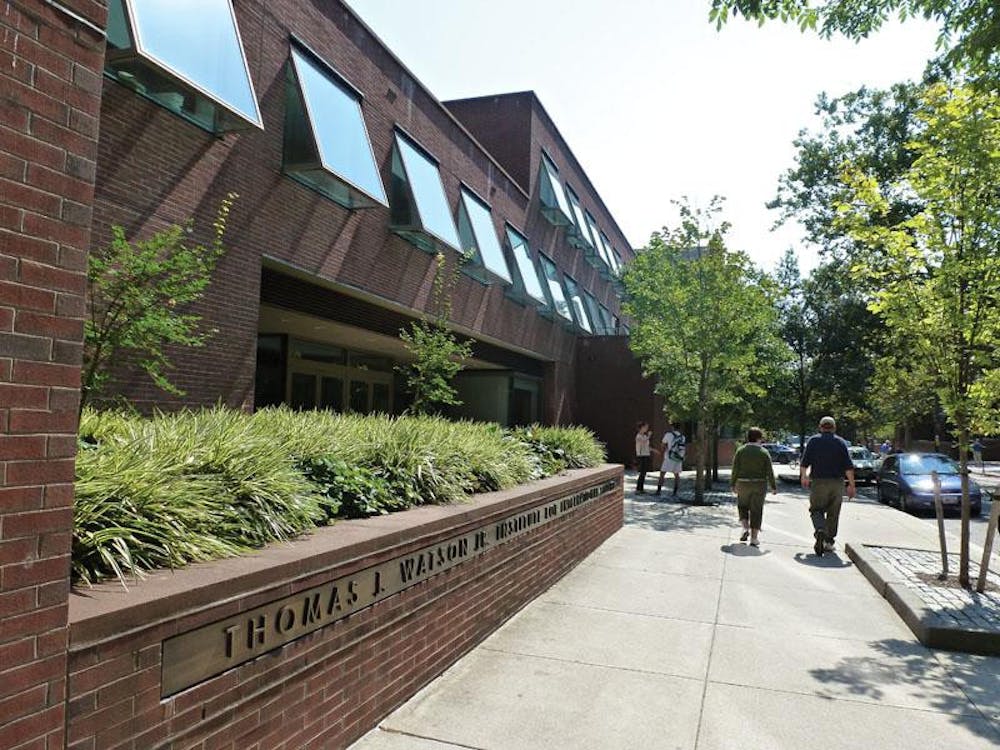The Watson Institute for International and Public Affairs has received a $50 million gift from three donors, the University announced Monday evening.
The joint gift, which is part of the BrownTogether comprehensive campaign’s $3 billion early fundraising efforts, was awarded by Chancellor Thomas Tisch ’76 and his wife, Alice Tisch; the Thomas J. and Olive C. Watson Jr. Foundation administered by David McKinney; and Chancellor Emeritus Stephen Robert ’62, said Provost Richard Locke. With the recent gift, the Watson Institute has accrued $80 million in under three years, Locke said.
About $25 million of the gift will fund the construction of a new 20,000-square-foot building, according to a University press release Monday. Separately, a building at 59 Charlesfield St. is currently under renovation to house staff from the Taubman Center for American Politics and Policy, which integrated with the Watson Institute earlier this year.
The rest of the gift will go toward increasing the number of faculty members at the institute and supporting ongoing programs, Locke said. The University is already in the process of hiring additional faculty members, and the new building will provide much-needed room for expansion because the institute is “running out of space,” Locke said.
When President Christina Paxson P’19 first assumed her position at the University, she saw that the Watson Institute was an “underutilized resource” and “could play a bigger role both on campus and in the country,” Locke said. As a result, Paxson hired Locke to serve as the institute’s director in 2013, Locke said. The University announced Oct. 20 that Edward Steinfeld, director of the China Initiative, will become director of the institute in January, as Locke was appointed provost in June.
Donors were impressed by the rapid growth of the Watson Institute since the beginning of its strategic plan in 2013, Locke said. Before the plan’s implementation, the institute had a small number of faculty and “had promise, but wasn’t fulfilling that promise,” he added.
“When (Paxson and Locke) came to Brown and began to expand Watson and move it to being one of the top institutes in the country, contributing to that — as part of my service to Brown — became very appealing,” Robert said in a University press release Monday.
While creating the goals of the strategic plan, Locke was committed to seeing the Watson Institute used as a resource to “enrich the experience of Brown students” and to “enhance Brown’s visibility and impact on the world,” Locke said. The plan required “benchmarking” the Watson Institute with other “leading centers of international and public affairs,” and was completed in spring 2013, he said.
Over the past two-and-a-half years, the plan has been implemented by making the Watson Institute command a larger presence on campus through holding an “incredible amount of activities” for students, faculty and community members, Locke said. The plan was able to use resources to strengthen the departments housed within the institute, including the Department of International Relations and the Department of Development Studies, as well as areas of study that are “quintessentially Brown,” he said.
“This gift will significantly enhance our ability to influence world affairs on such topics as food and water security, health care and cross-cultural conflict,” Paxson said in the press release.
The faculty at the Watson Institute has nearly quadrupled in size since 2013, with around 20 faculty members currently working for the institute, Locke said, adding that with “every single offer we’ve made, people have come.” With the recent gift, the Watson Institute anticipates adding about 10 new faculty members to its current roster, he added.
A new postdoctoral program called for in the institute’s strategic plan has been successful since its implementation, Locke said. The program receives about 500 applications a year to fill around five or six slots for post-doctoral fellows who do research with the Watson Institute and teach an undergraduate course, he said.
Brown students value being “engaged,” he said, adding that the Watson Institute helps students “translate rigorous research in the social sciences into policy that’s going to make a difference in the world.”
Locke said he hopes students see a “world-class resource” in the Watson Institute, adding that the new gift “will be able to give us the kind of scale that we need to compete with the very best programs in the country.”





